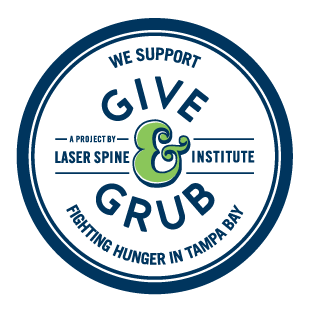Do you think eating healthy is too expensive or wonder why you should bother? A healthy diet can shrink your waistline, but weight loss isn’t the only reason to choose nutritious foods over empty calories. Just look at these mental and physical benefits of a nutritious diet:
- Better moods and fewer mood swings.
- Improved focus.
- Better sleep.
- More energy.
- Improved athletic performance.
- Clearer skin.
- Reduced digestive problems.
- A stronger immune system.
- Lower risk of chronic lifestyle diseases like diabetes, heart disease, and cancer.
Eating well doesn’t have to break the bank, either. If you think healthy eating means shopping organic at high-end stores like Whole Foods, think again. While eating well on a tight budget might require more planning, it absolutely can be done. Don’t believe us? These six budget-friendly shopping and cooking tips will show you how.
Buy in Bulk
Why pay for packaging? Instead of buying grains, beans, nuts, and other pantry staples pre-packaged, shop for these items in the bulk section. At most stores, bulk goods are considerably cheaper than packaged foods, and by transferring to a reusable container when you get home, you can keep these foods fresher for longer.
Use Coupons
When you do buy packaged foods, use coupons to score a lower price. You’ll find the cheapest prices on packaged foods at big box stores like Walmart. If you do a little digging before you shop, you can pair Walmart promo codes with coupons to save on everything from groceries to supplements.
Go Meatless
Beans aren’t just one of the healthiest foods you can eat, they’re also one of the cheapest. Instead of eating meat with dinner every night, cook a meatless meal once or twice a week. Opt for cost-effective vegetarian proteins like black beans, lentils, or tofu over meat substitutes, which can be expensive and aren’t always made with healthy ingredients. Not sure what to do with beans? Check out this list of 24 vegetarian recipes that even the most devoted meat-lovers will enjoy. Just be sure to prepare beans properly to avoid gastrointestinal problems.
Know When Organic Matters
You’re better off skipping the boxed macaroni and cheese entirely rather than spending more on the organic version — most highly-processed foods simply aren’t good for you, organic or not. However, some foods are worth buying organic, even if it means spending a little more. Foods on the “dirty dozen” list, including strawberries, apples, leafy greens, tomatoes, dairy, and beef, are the best use of your organic dollars, whereas foods on the “clean 15” list use fewer pesticides to grow and are less important to buy organic.
Shop In-Season
If you really want to save on produce, buy what’s in season. Seasonal produce varies depending on location, but in general, you can count on leafy greens, snap peas, and broccoli in the spring, tomatoes, peppers, melons, and sweet corn in the summer, and winter squash, cabbage, and apples in the fall. Eating seasonally also keeps your menu interesting!
Understand Your Supplement Needs
Even the healthiest of eaters need to supplement their diet sometimes. However, that doesn’t mean you should add a multivitamin to your daily regimen. To avoid getting too much of some vitamins and too little of others, tailor the supplements you take to your specific dietary needs and health goals. Talk to your doctor about which supplements can improve your health, and shop carefully to find high-quality supplements. If you buy from a company that doesn’t stand behind their product, you might spend money on something that doesn’t do what it claims. Don’t forget to be on the lookout for coupons for vitamins and supplements — brands like One A Day almost always offer them on their site.
Everyone deserves to fuel their body and mind with a nutritious diet, no matter what their budget looks like. Instead of assuming you can’t afford to improve your diet, try using these strategies on your next shopping trip. You’ll be amazed at just how much money you save!
Image via Rawpixel
About the author: Sheila Olson has been a personal trainer for five years. She created Fit Sheila to spread the word about her fitness philosophy and encourage her clients to stay positive. She incorporates mindfulness and practices for reducing negative talk into her sessions
If you’re interested in being a guest blogger on No Ordinary Liz, feel free to contact me with your creative ideas!!




0 Comments